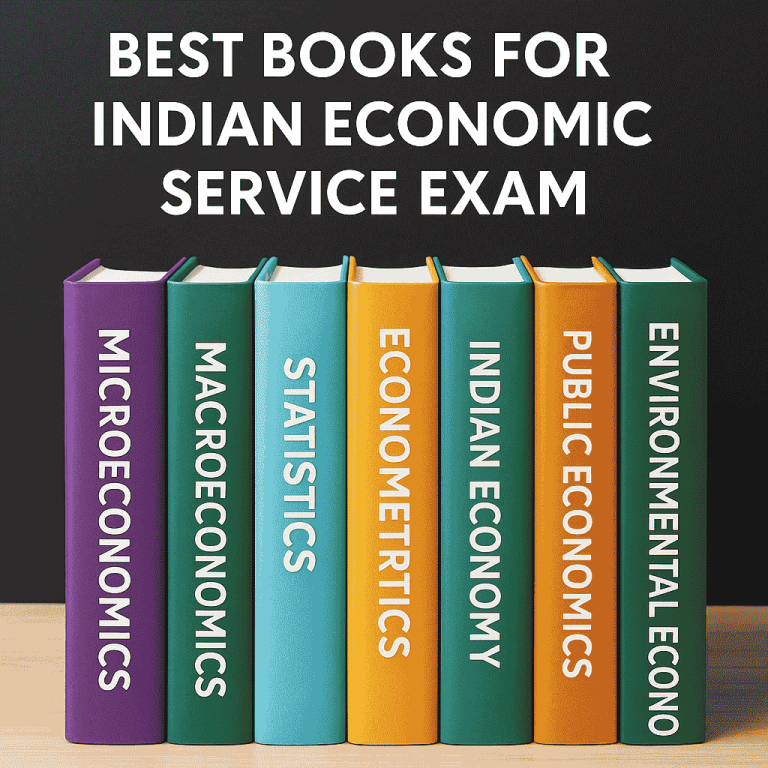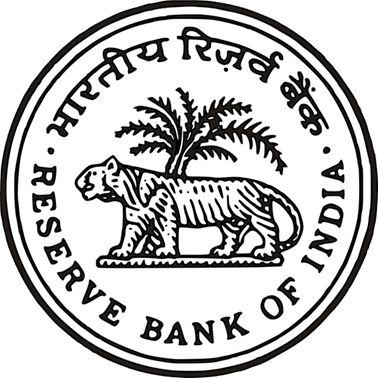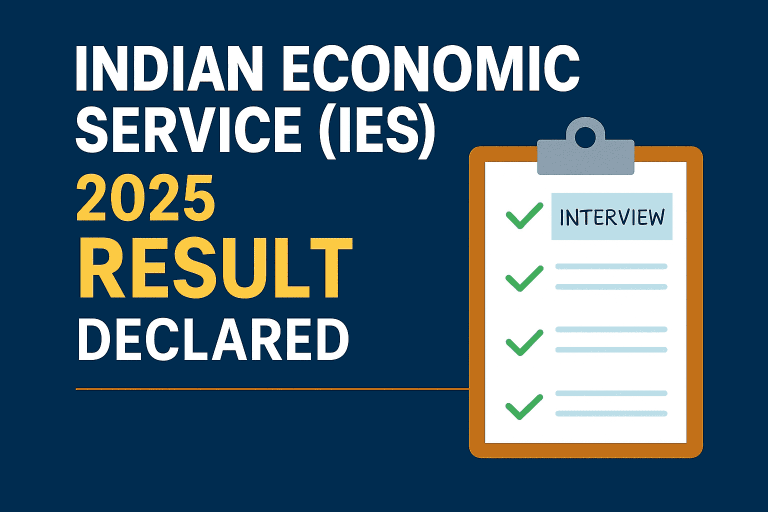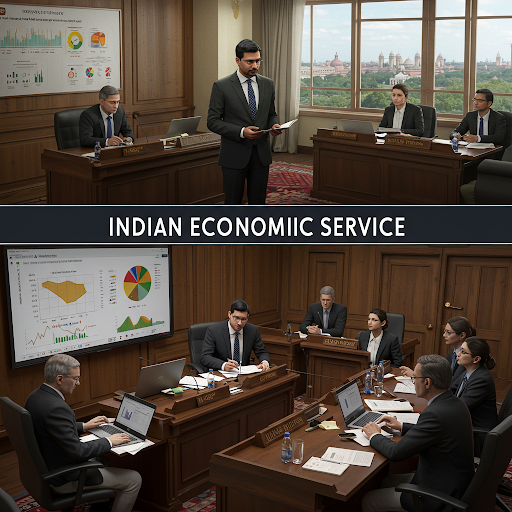Preparing for the Indian Economic Service (IES) exam requires a solid foundation in core economics subjects and the right selection of Indian Economic Service (IES) books. In this blog post, we bring you a expert-curated list of the best Indian Economic Service (IES) books for all subjects, including Microeconomics, Macroeconomics, Statistics, Econometrics, Indian Economy, and Public Finance. These books have been recommended by Indian Economic Service (IES) toppers and Economics experts for their clarity, depth, and alignment with the latest Indian Economic Service Syllabus. Whether you’re starting your IES exam preparation or refining your strategy, the right resources can make a significant difference in your performance.
Note: To secure top-rank in Indian Economic Service (IES) exam, you need NOT read all books listed below cover to cover. Rather, you need to cover only those chapters which contain the topics listed in the official Syllabus.
IES General Economics-Paper-I Booklist
Part-A
- Hal Varian (2010): Intermediate Microeconomics: A Modern Approach, 8th edition, Affiliated East West Press (India)
- H.L. Ahuja, Advanced Economic Theory: Microeconomic Analysis, latest edition, S.Chand & Company, New Delhi
- Snyder and W.Nicholson (2010): Fundamentals of Microeconomics, Cengage Learning (India)
- For Game Theory (in addition to AET by HL Ahuja): Martin J. Osborne (2012): An Introduction to Game Theory, Oxford University Press
Part-B: IES Quantitative Methods in Economics Booklist
- Miller and Miller (2013), John E. Freunds’s Mathematical Statistics, 8th Edition
- S.C. Gupta, Fundamentals of Statistics, latest edition
- D. N. Gujarati, D.C. Porter and Manoranjan Pal, Basic Econometrics, 6th edition, McGraw Hill, 2021 Indian edition.
- K. Sydsaeter and P. Hammond: Mathematics for Economic Analysis, Pearson Educational Asia: Delhi (2002)
- Alpha C. Chiang and Kevin Wainwright (2017), Fundamental Methods of
Mathematical Economics, 4th Edition, McGraw Hill Education
IES General Economics-II Booklist
- Rudiger Dornbusch, Stanley Fischer and Richard Startz (2018), Macroeconomics, 12th Edition, McGraw Hill
- Richard Froyen (2013), Macroeconomics: Theories & Policies, 10th edition, Pearson Education (India)
- Mankiw, N. (2016). Macroeconomics, 9th edition
- A.P. Thirlwall (2011), Economics of Development, 9th Edition, Palgrave Macmillan
- M.L. Jhingan (2016), Economics of Development and Planning, 41st Edition, Vrinda Publications, Delhi
- D. Salvatore (2014), International Economics, 11th edition, Wiley (Asia)
- Financial Markets and Institutions by Mishkin and Eakins
- Indian Financial System by Bharati Pathak
- Google Search
IES General Economics-III Booklist
- Public Economics in Theory and Practice by Musgrave and Musgrave
- Environmental Economics by Charles D Kolstad
- H.L. Ahuja, Advanced Economic Theory: Microeconomic Analysis, latest edition, S.Chand & Company, New Delhi
- IGNOU Notes
- Google Search
IES Indian Economics Books
- Indian Economy since Independence by Uma Kapila
- Indian Economy by Mishra and Puri
- Economy Survey
- Union Budget
- Extensive Google Search
Frequently Asked Questions Indian Economic Service (IES) Booklist
Testonomics has listed so many Indian Economic Service (IES) books. Do I have to read all of them in entirety?
No. You do not need to read all these books from cover to cover. Go through only the relevant Chapters from each book. It is possible that from some books, you may need to prepare only a single Chapter or a single topic.
Ultimately, you need to prepare all topics listed in Indian Economic Service (IES) Syllabus. You need to prepare all these topics. For each topic, we want to refer to the best Indian Economic Service (IES) books.
Since I do not want to read so many books, will it be okay if I rely just on my Indian Economic Service coaching notes ?
No matter where you are enrolled for coaching, be it at Testonomics Indian Economic Service coaching or at any other coaching, every serious Indian Economic Service (IES) aspirant SHOULD READ TEXTBOOKS.
Remember, in any coaching, 100 students may be enrolled. However, not all 100 can get selected in any particular year. Only candidates who exert individual efforts can expect to do well in Indian Economic Service Exam. Hence, every serious candidate must be prepared to go through original books.





